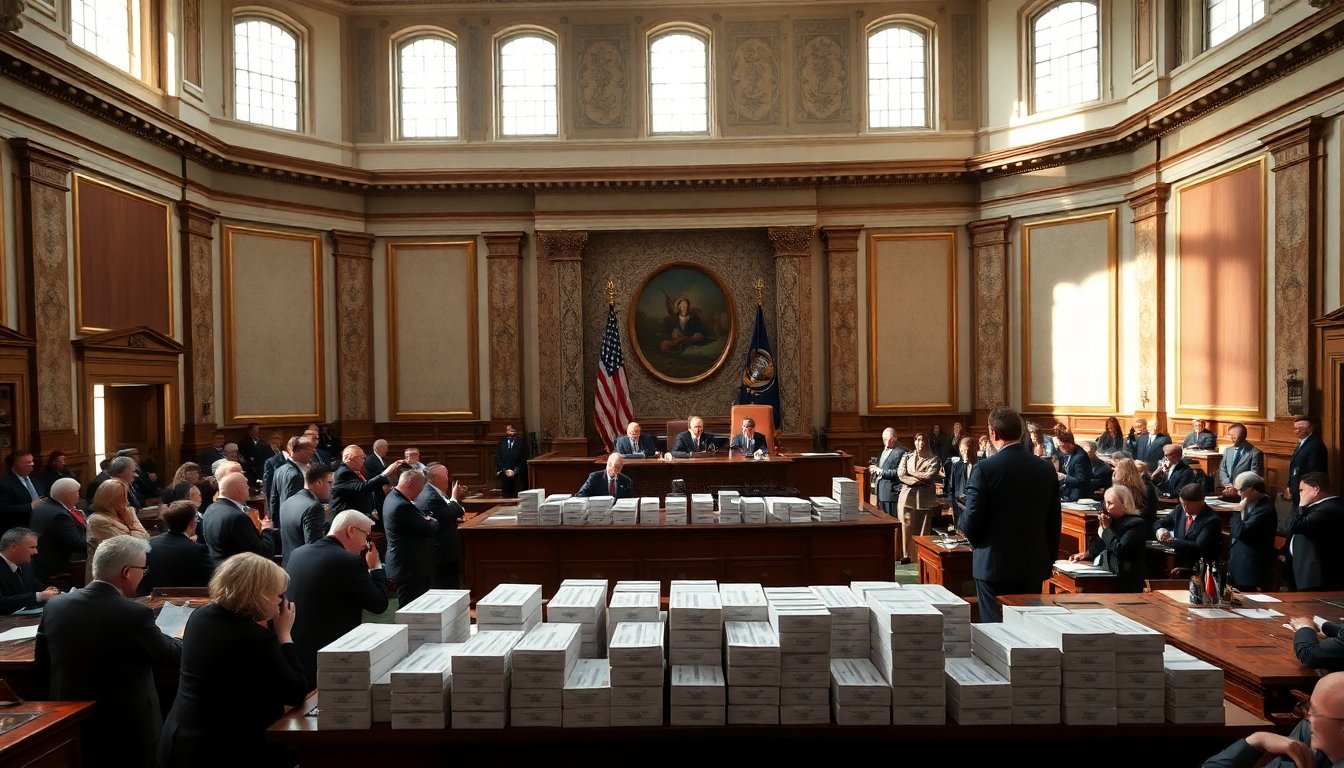Table of Contents
In a significant turn of events, the House of Representatives voted to lift the 43-day government shutdown, marking a pivotal moment in U.S. politics. The vote concluded with a tally of 222 to 209, taking place shortly after 8 p.m. ET on a Wednesday evening. This decision is seen as a victory for the Republican Party and a crucial step toward addressing the immediate needs of the American public.
House Speaker Mike Johnson, representing Louisiana, appeared on Fox News’ ‘Hannity’ shortly after the vote to share his thoughts. He criticized Democratic leaders, particularly Chuck Schumer and Hakeem Jeffries, suggesting their political ambitions overshadowed the pressing issues faced by American families struggling with hunger.
Political dynamics and the shutdown
Johnson articulated his concerns, indicating that the political climate, particularly in New York—where both Schumer and Jeffries hail from—was heavily influenced by more radical factions within the Democratic Party. He remarked, “They were more concerned about facing backlash from the left than addressing the needs of families who are facing food insecurity.” His comments reflect a broader sentiment among Republicans who believe that Democrats have prioritized their political survival over the welfare of constituents.
Reopening the government
The passage of the bill that ended the shutdown is viewed by Republicans as a critical triumph. “The long national nightmare is finally over,” Johnson declared, emphasizing that the Democrats’ shutdown was effectively brought to an end through Republican unity. He expressed pride in the House’s decision, reinforcing that they had fulfilled their promise to the American people.
With the bill now on its way to President Donald Trump for approval, Johnson expressed confidence that the administration would support the effort to restore government operations. The legislation is designed to fund the government until January 30, effectively reversing job cuts that had been implemented by the Trump administration.
Contentious negotiations and future implications
The standoff that led to the shutdown was largely rooted in disagreements regarding funding bills, particularly concerning the continuation of enhanced Obamacare subsidies. Johnson characterized the Democrats’ stance as a “selfish political stunt” that only served to inflict harm on the American populace. He warned that the repercussions of this shutdown would not be easily forgotten by voters.
No concessions to Democrats
Throughout the negotiations, Johnson maintained that no substantial concessions were granted to the Democrats. “We didn’t give them anything—none of their radical demands were included in this legislation,” he stated, indicating a clear divide between the two parties. This assertion suggests that Republican leadership is positioning itself as the party of accountability, contrasting sharply with the Democrats’ approach.
Johnson further noted that the Trump administration had shown commitment to supporting Americans impacted by the shutdown. He assured the public that the entire Cabinet would work diligently to restore government functionality. “You will see that same level of fervor from the administration moving forward,” he stated, underscoring the urgency of the situation.
The resolution of the government shutdown is not merely a procedural victory; it has broader implications for the political landscape in the United States. As both parties strategize for upcoming elections, their handling of such critical issues will likely influence voter sentiment and party allegiance.


